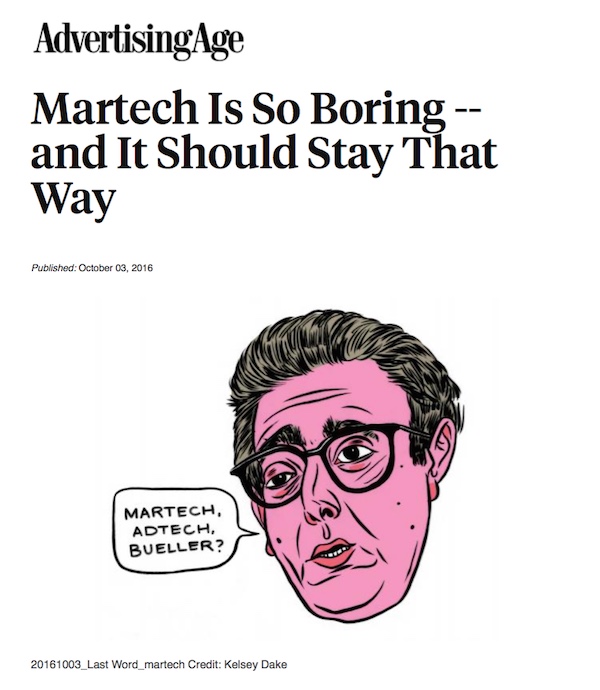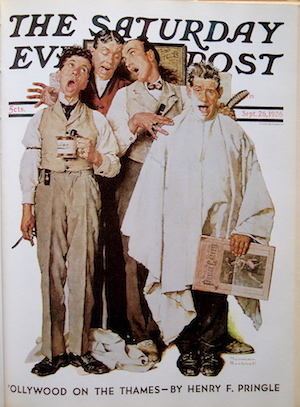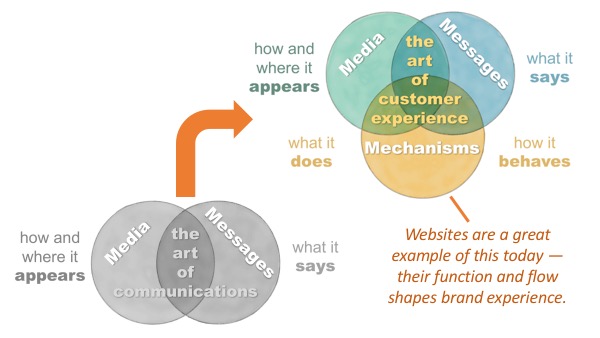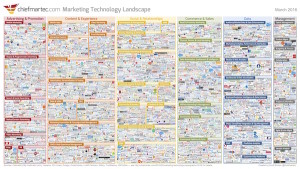
Dear Ken Wheaton,
I read your editorial from October 3, Martech Is So Boring — and It Should Stay That Way, and felt compelled to respond.
First, let me say how influential AdvertisingAge has been to me. Growing up in the 80’s, when my parents ran a small agency, I eagerly read copies at their office each week. (Yeah, I was a strange kid.) AdAge seeded my fascination with marketing, and I’m grateful for the inspiration I’ve drawn from your pages over the past four decades.
So it’s with great respect that I say: you’re wrong that martech is boring — or that it should be.
I understand that being pitched a stream of tech jargon causes your eyes to glaze over. I imagine many of your readers feel the same. Boring and confusing tech talk was not what you or they signed up for with a career in marketing. I was told there would be martinis at lunch.

And I appreciate that the pitch you heard from Neustar CEO Lisa Hook — “you hit the button and the answer comes out” — is so much more appealing. Just “make it all seem easy so that marketers can go back to worrying about campaigns and creativity and strategy.” Make the complexity invisible.
If there’s a heaven for marketers, it surely looks something like that. If only Norman Rockwell were alive to paint such a cover for your publication.
But marketing technology is not “a Rube Goldberg machine” marring an otherwise idyllic marketing scene. A Rube Goldberg machine is a contrapation that is deliberately over-engineered to perform a simple task in a complicated fashion. The fallacy in your editorial is in the “simple task” portion of that definition.
Marketing today is not a simple task.
Sure, you can distill its mission into a simple statement, “Persuade people to buy our stuff.” That’s easily said. But accomplishing that turns out to be really hard. (And thank goodness, otherwise there would be no meaningful careers in marketing at all, and everyone would own a closet full of Snuggies.)
Marketing has grown exponentially more complex in the digital age. That’s partly because of an explosion of new channels and touchpoints between marketers and their audiences that continually morph and multiply — and the massive clouds of data billowing from that Silicon Valley firestorm.
Adtech didn’t create that complexity. It was developed in response to it.
But what truly makes marketing in a digital world complex — yet wondrous — is that it’s so much more than advertising. Marketers are not limited to manipulating messages and media to build brands. They now have a powerful third dimension to strategy and creative: mechanisms.

Mechanisms are the function and flow of digital experiences. They let us shape a brand by what it does — by how our touchpoints with customers behave. Increasingly, through marketing technology, marketers can manipulate these mechanisms with the same fluidity we’ve had with art and copy.
Far more than the most iconic 30-second spots in the history of advertising, these mechanisms shape brands in the minds of consumers. The digitally-enabled experiences people have — and how they relate them through social media — are the very essence of a brand today.
I don’t use the word “dimension” by accident. This is a Flatland-like journey of discovery for us that we’ve only just begun. It is dizzying in the scale of what’s already possible, and yet there’s so much more barreling down the pike: AR, VR, wearables, the Internet of Things, conversational computing, machine intelligence. You can dismiss those things as techno-babble, but that would be a mistake. They are reshaping the very fabric by which brands and consumers engage with each other.
It’s why marketing is so deeply entangled in the larger mission of digital transformation.
Anyone who claims that they fully understand the implications of all this is either delusional or trying to sell you something.
But that’s why this is thrilling. It’s not boring! It’s an incredible gift for marketers of our era to have the opportunity to pioneer this new, three-dimensional world instead of merely tracing the outlines of marketing’s two-dimensional playbook from last century.
We get to redraw the boundaries of marketing campaigns, creative, and strategy that future generations will inherit as the new outlines of our profession.
Marketing technology is more than the easel for creating this masterpiece. It’s the canvas, the brushes, the pencils, and an infinite technicolor palette of oils, acrylics, watercolors, chalks, and, yeah, even some glitter.
We should not love martech for its own sake, of course, but rather for what it enables us to render from our imagination to reality. But we have to love it enough to appreciate it as an integral element of our art and learn how to wield it like a master.
When you look at the LUMAscape, you see a jumble of logos on a page. (And if you have mild disdain for Terry Kawaja’s slide, you’ll almost certainly have apoplectic digust for my broader marketing technology landscape.)
Your inditment that it isn’t tremendously helpful to marketing’s mission is fair.
If your mission were to lead a manned spaceflight to Alpha Centauri, it would be like someone handing you a Hubble photogrpah of the galaxy. It doesn’t explain how to get there from here.
That doesn’t make the photograph useless. On the contrary, it offers us one keyhole view into an enormous and complex universe that we aspire to navigate. It helps us appreciate the stunning scale of the cosmos we seek to explore, with some high-level sense of how the stars are positioned among each other. That’s an admittedly tiny contribution to the mission to Alpha Centauri. But it is a contribution.
Our mission in marketing may not rank with interstellar travel, but it is massive and complex and a journey into the uncharted territory of the future. It is a future not merely enabled by but shaped by technology.
As marketers, that future is ours to shape. And it’s damn exciting.
Yours truly,
Scott Brinker
P.S. Please accept an invitation to be my guest at an upcoming MarTech conference. I’ll wager you $100 that you won’t be bored.




